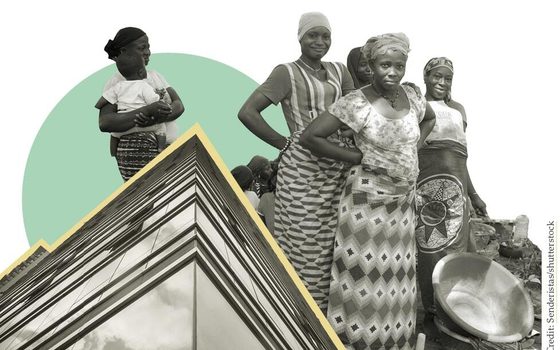Taxing wealth is a feminist issue
We hear a lot about the gender pay gap - but what about the gender wealth gap?
22 September 2025
This is a guest blog from Ignacia Pinto, senior research and policy officer at the Women’s Budget Group.
Wealth inequality is increasing in the world. Of all the additional wealth accumulated globally over the last 30 years, the richest 1% captured a staggering 38%. The poorest half, by contrast, has gained just 2%. The UK is no exception. After a decline in wealth inequality throughout the 20th century, the UK has reversed course in recent decades. Today, the richest 10% hold around half of all wealth in Great Britain, and the chasm between rich households and those with nothing to fall back on has widened significantly.
But there’s another dimension to this growing divide that receives far too little attention: the gender wealth gap. New analysis by the Women’s Budget Group of wealth in Great Britain shows that, on average, men hold around £78,000 more wealth than women. That’s a gap of 21% — significantly higher than the current gender pay gap of 13%. The latter has rightly become a focal point in conversations about gender inequality. But pay is only one part of the picture. It doesn’t tell us that economic disparities between men and women are even wider when it comes to wealth, be it accumulated, inherited or invested.
But it’s not just how much wealth men and women have — what they own also differs. Women are much more likely to hold wealth in property and physical wealth such as vehicles and household contents, often shared with other household members, while more than 55% of men’s wealth is held individually as private pensions and financial wealth. These are the main bulwarks against old age poverty, and a safeguard for economic independence. Indeed, the average private pension wealth of men is 43% higher than that of women. This gap increases with age, reflecting a lifetime of differences in earnings, unpaid care work and structural disadvantages, like the motherhood pay penalty.
Meanwhile, in the UK, wealth itself is not directly taxed, and income derived from wealth, such as capital gains and dividends, is generally taxed at lower rates than income from employment. This under-taxation of wealth disproportionately benefits the wealthy, and by extension, wealthy men. This is a problem from a gender perspective for two reasons. First, it limits the money available for public spending on vital services like childcare and social care, and social security. With women doing 50% more unpaid care work, they rely more heavily on the services that make up our social infrastructure — the very things that are first on the chopping block when budgets are tight. Second, because wealth generates more wealth, under-taxation of wealth further fuels wealth inequality, undermining gender equality.
The government could tackle this problem by taxing wealth, and there’s no shortage in options. One of the proposals that has gained popularity is a wealth tax of 2% on assets over £10m, which could raise up to £24bn a year. Polling by Patriotic Millionaires UK shows that 80% of millionaires support such a tax. Another option is to equalise capital gains tax and income tax, so that income from wealth is taxed at the same level as income from work. A reform of capital gains tax could raise £14bn a year and reduce opportunities for tax avoidance.
In the upcoming autumn budget, expectations are high for measures to address persistent economic uncertainty — marked by sluggish growth and stubborn inflation — while the chancellor already faces pressures to reduce the government deficit and “balance the books”. This, in practice, too often means cutting public services and social security on the back of the most vulnerable. These services form the backbone of a fair, gender-equal and just society, and any additional squeeze risks deepening existing inequalities.
It doesn’t have to be this way. A fairer alternative is to tax wealth more effectively, generating much-needed revenue to help fund the public services that millions depend on and support a functioning and healthy economy. It’s a chance to address the growing concentration of wealth, and to begin closing the gender wealth gap that has been ignored for too long. If we want a fairer, more equal UK, one that values care as much as capital, and work as much as wealth, we must ensure that those with the broadest shoulders contribute their fair share. A more just tax system isn’t just good economics, it’s a deeply feminist issue.
Image: iStock
Topics Inequality






